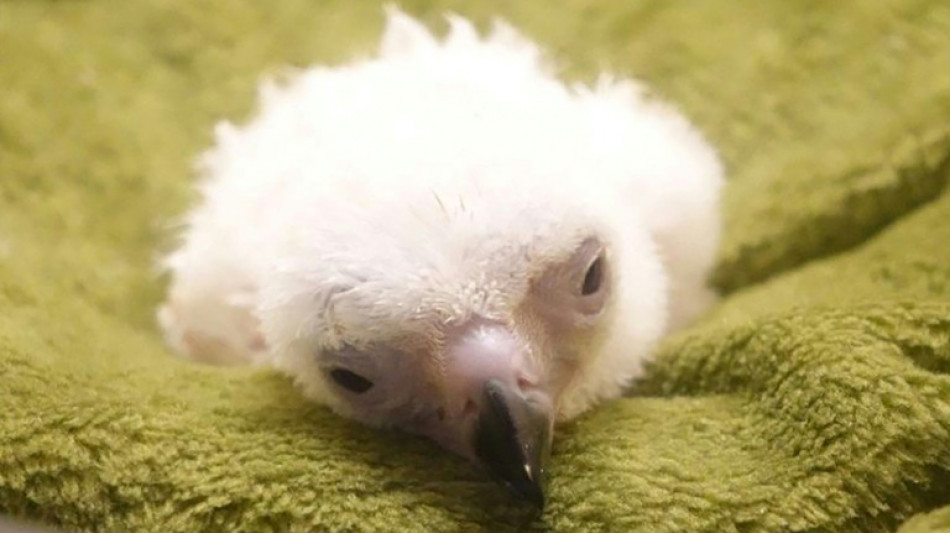
RBGPF
69.0200

A Philippine Eagle chick hatched via artificial insemination has died, an avian conservation foundation has announced, in a fresh setback for one of the world's largest and most critically endangered raptors.
Habitat loss and ruthless hunting have caused a rapid decline in the number of Philippine Eagles, the national bird of the archipelago country.
The hatching of "Chick Number 30" last month briefly stirred hope that science and conservation could save the forest-dwelling raptor species, but expectations were soon cruelly dashed.
"This heartbreaking loss is a solemn reminder of how delicate chick-rearing can be and how critically endangered species are particularly vulnerable," the Philippine Eagle Foundation said in an undated statement on its website.
A product of artificiraptorsal insemination, the 17-day-old male chick, which died on Friday, had been the first successful hatchling in the new facility.
Complications from a condition known as "yolk sac retention" were the possible cause of death, the statement said.
The condition, common in poultry farms, indicates the entry of bacteria through incubating eggshells, or chick exposure to bacteria after hatching.
Philippine Eagles, known for their sumptuous head plumage and a 2-metre (seven-foot) wingspan, are difficult to mate, with some even killing unwanted suitors.
There are only 392 pairs of the eagles remaining in the wild, with just 30 born in captivity, the foundation estimates.
The organisation's ultimate goal is to release the eagles back into the wild, but it has not once succeeded in its 37 years of operation.
Many Philippine Eagles have died after being shot or electrocuted while perched on power lines.
Each pair needs at least 4,000 hectares (about 10,000 acres) of forest, a rapidly-disappearing ecosystem in the Philippines, to hunt flying lemurs, palm civets, flying squirrels and monkeys.
While underweight, the latest chick had initially displayed normal behaviour and feeding patterns until November 26, when it began to exhibit laboured breathing and sneezing, the foundation said.
"Of all the chicks that they've successfully hatched and raised, this is the first time that the (foundation) breeding team had a case of yolk sac retention, which is usually linked to infection or other causes," Bayani Vandenbroeck, who conducted the necropsy, was quoted as saying.
"Strict hygiene and management protocols were followed, so we did not expect this at all, but we will probe where else we can improve," he added.
C.Sramek--TPP